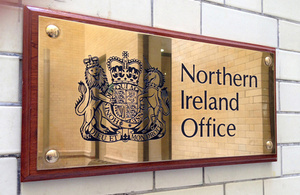- Rishi Sunak unveils the UK Government’s plan to protect jobs and support businesses across Wales over the coming months
- Central to plan is a new Job Support Scheme and extension of Self Employment Income Support Scheme
- And over one million UK businesses will get flexibilities to help pay back loans
The Chancellor Rishi Sunak outlined additional UK Government support to provide certainty to businesses and workers impacted by coronavirus in Wales.
Delivering a speech in Parliament, the Chancellor announced a package of measures that will continue to protect jobs and help businesses through the uncertain months ahead as we continue to tackle the spread of the virus.
The package includes a new Job Support Scheme to protect millions of returning workers, extending the Self Employment Income Support Scheme and 15% VAT cut for the hospitality and tourism sectors, and help for businesses in repaying government-backed loans.
The announcement comes after additional measures to combat the spread of the virus were imposed across the UK.
The Chancellor of the Exchequer Rishi Sunak said:
I understand that the resurgence of the virus and the restrictions imposed as a result present a new challenge to businesses and workers which are already struggling.
That’s why I have brought forward UK-wide measures to directly support Welsh jobs and companies through this next phase of the crisis.
I was always clear that I wouldn’t hesitate to act in a creative and effective way to protect the Welsh economy and these measures represent that commitment.
Secretary of State for Wales Simon Hart said:
The UK Government has directly supported more than 500,000 jobs in Wales during the coronavirus pandemic and our Winter Economic Plan sets out the next steps to tackle the ongoing and unprecedented economic impact of the virus.
The new Job Support Scheme, the extension of the Self-Employment Income Support Scheme and the other measures announced by the Chancellor will help keep people in jobs, extend crucial support to businesses and give them the certainty they need.
The struggle against Covid-19 is the biggest crisis Wales and the UK has faced in decades but we will do everything we can to protect jobs and the economy while keeping people safe.
Since the beginning of the pandemic the UK Government has provided billions of pounds of support both to the devolved administration in Wales and directly to Welsh businesses and workers.
We have given the devolved administration an additional £4b to cope with the pressures of the pandemic and we have protected more than half a million jobs in Wales through our furlough scheme.
Our Self Employment Support Scheme also helped 110,000 self-employed people in Wales and more than 41,000 businesses benefitted from UK Government loan schemes.
The Chancellor also unveiled his Plan for Jobs in July which supported jobs across the UK by focussing on skills, young people and boosting the hospitality sector with a VAT cut and landmark Eat Out to Help Out scheme.
The UK Government has been consistently clear that it would keep its support under review to protect jobs and the economy, with today’s action reflecting the evolving circumstances and uncertainty of the months ahead.
The package of measures, which applies to all regions and nations of the UK, includes:
Support for workers
A new Job Support Scheme will be introduced from 1 November to protect viable jobs in businesses who are facing lower demand over the winter months due to coronavirus.
Under the scheme, which will run for six months and help keep employees attached to the workforce, the UK Government will contribute towards the wages of employees who are working fewer than normal hours due to decreased demand.
Employers will continue to pay the wages of staff for the hours they work – but for the hours not worked, the UK Government and the employer will each pay one third of their equivalent salary. This means employees who can only go back to work on shorter time will still be paid two thirds of the hours for those hours they can’t work.
In order to support only viable jobs, employees must be working at least 33% of their usual hours. The level of grant will be calculated based on employee’s usual salary, capped at £697.92 per month.
The Job Support Scheme will be open to businesses across the UK even if they have not previously used the furlough scheme, with further guidance being published in due course.
It is designed to sit alongside the Jobs Retention Bonus and could be worth over 60% of average wages of workers who have been furloughed – and are kept on till the start of February 2021. Businesses can benefit from both schemes in order to help protect jobs.
In addition, the UK Government is continuing its support for millions of self-employed individuals by extending the Self Employment Income Support Scheme Grant. An initial taxable grant will be provided to those who are currently eligible for SEISS and are continuing to actively trade but face reduced demand due to coronavirus. The initial lump sum will cover three months’ worth of profits for the period from November to the end of January next year. This is worth 20% of average monthly profits, up to a total of £1,875.
An additional second grant, which may be adjusted to respond to changing circumstances, will be available for self-employed individuals to cover the period from February 2021 to the end of April – ensuring our support continues right through to next year.
This is in addition to the more than £13 billion of support already provided for over 2.6 million self-employed individuals through the first two stages of the Self Employment Income Support Scheme – one of the most generous in the world.
Tax cuts and deferrals
As part of the package, the UK Government also announced it will extend the temporary 15% VAT cut for the tourism and hospitality sectors to the end of March next year. This will give businesses in the sector – which has been severely impacted by the pandemic – the confidence to maintain staff as they adapt to a new trading environment.
In addition, up to half a million business who deferred their VAT bills will be given more breathing space through the New Payment Scheme, which gives them the option to pay back in smaller instalments. Rather than paying a lump sum in full at the end March next year, they will be able to make 11 smaller interest-free payments during the 2021-22 financial year.
On top of this, around 11 million self-assessment taxpayers will be able to benefit from a separate additional 12-month extension from HMRC on the “Time to Pay” self-service facility, meaning payments deferred from July 2020, and those due in January 2021, will now not need to be paid until January 2022.
Businesses given flexibility to pay back loans.
The burden will be lifted on more than a million businesses who took out a Bounce Back Loan through a new Pay as You Grow flexible repayment system. This will provide flexibility for firms repaying a Bounce Back Loan. This includes extending the length of the loan from six years to ten, which will cut monthly repayments by nearly half. Interest-only periods of up to six months and payment holidays will also be available to businesses. These measures will further protect jobs by helping businesses recover from the pandemic.
We also intend to give Coronavirus Business Interruption Loan Scheme lenders the ability to extend the length of loans from a maximum of six years to ten years if it will help businesses to repay the loan.
In addition, the Chancellor also announced he would be extending applications for the UK Government’s coronavirus loan schemes that are helping over a million businesses until the end of November. As a result, more businesses will now be able to benefit from the Coronavirus Business Interruption Loan Scheme, the Coronavirus Large Business Interruption Loan Scheme, the Bounce Back Loan Scheme and the Future Fund. This change aligns all the end dates of these schemes, ensuring that there is further support in place for those firms who need it.
Responses from business groups
Dame Carolyn Fairbairn, CBI Director-General, said:
These bold steps from the Treasury will save hundreds of thousands of viable jobs this winter. It is right to target help on jobs with a future, but can only be part-time while demand remains flat. This is how skills and jobs can be preserved to enable a fast recovery.
Wage support, tax deferrals and help for the self-employed will reduce the scarring effect of unnecessary job losses as the UK tackles the virus. Employers will apply the same spirit of creativity, seizing every opportunity to retrain and upskill their workers.
The Chancellor has listened to evidence from business and acted decisively. It is this spirit of agility and collaboration that will help make 2021 a year of growth and renewal.
Mike Cherry OBE, Federation of Small Businesses National Chair, said:
The UK’s small businesses are facing an incredibly difficult winter. Today’s support package is the flipside of the coin to Tuesday’s COVID-19 business restrictions.
It is a swift and significant intervention, extending emergency SME loans, creating new wage support for small employers and the self-employed, and providing cashflow help on VAT deferrals and new Time To Pay for any tax bills to HMRC.
We welcome that the Chancellor is ensuring that decisions to protect public health are informed by the need to protect the economy, people’s jobs and prospects for young people in our schools and workplaces.
BCC Director General Adam Marshall said:
The measures announced by the Chancellor will give business and the economy an important shot in the arm. Chambers of Commerce have consistently called for a new generation of support to help preserve livelihoods and ease the cash pressures faced by firms as they head into a challenging and uncertain winter.
The Chancellor has responded to our concerns with substantial steps that will help companies preserve jobs and navigate through the coming months. The new wage support scheme will help many companies hold on to valued employees after furlough ends, and the extension of business lending schemes and tax forbearance will lessen the immediate pressure on cash flow for many affected firms.
As we look past the immediate challenge, more will need to be done to rebuild and renew our economy. Chambers of Commerce across the UK will continue to work with the UK Government to ensure the benefits of these schemes are delivered to firms on the ground.


